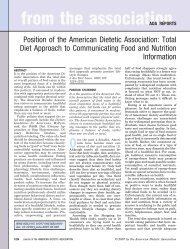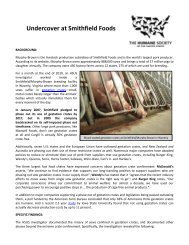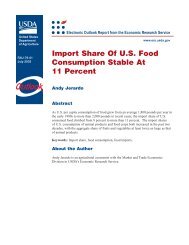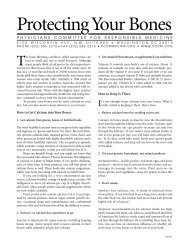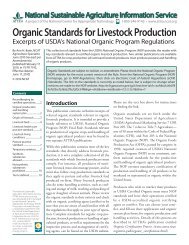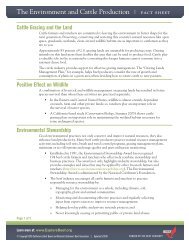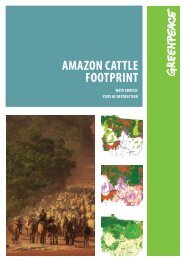THE MYTHS OF VEGETARIANISM Stephen Byrnes, PhD
THE MYTHS OF VEGETARIANISM Stephen Byrnes, PhD
THE MYTHS OF VEGETARIANISM Stephen Byrnes, PhD
Create successful ePaper yourself
Turn your PDF publications into a flip-book with our unique Google optimized e-Paper software.
eaters (this is often because heart and circulatory diseases are rarer). These days almost halfthe population in Britain is trying to avoid meat, according to a survey by the Food ResearchAssociation in January 1990." (77)In commenting on this claim of extended lifespan, author Craig Fitzroy astutely points out that:"The ' nine-year advantage ' is an oft-repeated but invariably unsourced piece ofanecdotal evidence for vegetarianism. But anyone who believes that by snubbing mum'sSunday roast they will be adding a decade to their years on the planet is almost certainlyindulging in a bit of wishful thinking." (78)And that is what most of the claims for increased longevity in vegetarians are: anecdotal. Thereis no proof that a healthy vegetarian diet when compared to a healthy omnivorous diet will resultin a longer life. Additionally, people who choose a vegetarian lifestyle typically also choose not tosmoke, to exercise, in short, to live a healthier lifestyle. These things also factor into one’slongevity.In the scientific literature, there are surprisingly few studies done on vegetarian longevity. RussellSmith, <strong>PhD</strong>, in his massive review study on heart disease, showed that as animal productconsumption increased among some study groups, death rates actually decreased! (79) Suchresults were not obtained among vegetarian subjects. For example, in a study published by Burrand Sweetnam in 1982, analysis of mortality data revealed that, although vegetarians had aslightly (.11%) lower rate of heart disease than non-vegetarians, the all-cause death rate wasmuch higher for vegetarians (80).Despite claims that studies have shown that meat consumption increased the risk for heartdisease and shortened lives, the authors of those studies actually found the opposite. Forexample, in a 1984 analysis of a 1978 study of vegetarian Seventh Day Adventists, HA Kahnconcluded,"Although our results add some substantial facts to the diet-disease question, werecognize how remote they are from establishing, for example, that men who frequently eatmeat or women who rarely eat salad are thereby shortening their lives." (81)A similar conclusion was reached by D.A. Snowden (82). Despite these startling admissions, thestudies nevertheless concluded the exact opposite and urged people to reduce animal foods fromtheir diets.Further, both of these studies threw out certain dietary data that clearly showed no connectionbetween eggs, cheese, whole milk, and fat attached to meat (all high fat and cholesterol foods)and heart disease. Dr. Smith commented,"In effect the Kahn [and Snowden] study is yet another example of negative resultswhich are massaged and misinterpreted to support the politically correct assertions thatvegetarians live longer lives." (83)It is usually claimed that meat-eating peoples have a short life span, but the Aborigines ofAustralia, who traditionally eat a diet rich in animal products, are known for their longevity (atleast before colonization by Europeans). Within Aboriginal society, there is a special caste of theelderly (84). Obviously, if no old people existed, no such group would have existed. In his bookNutrition and Physical Degeneration, Dr. Price has numerous photographs of elderly native




